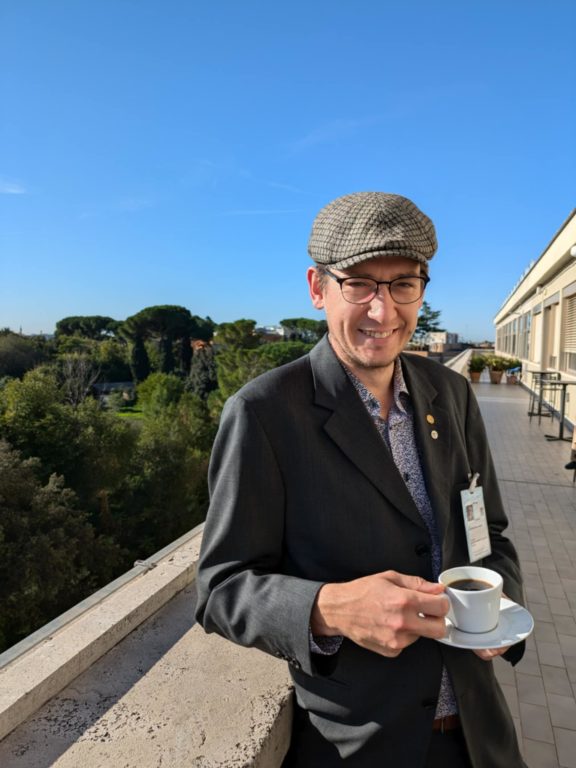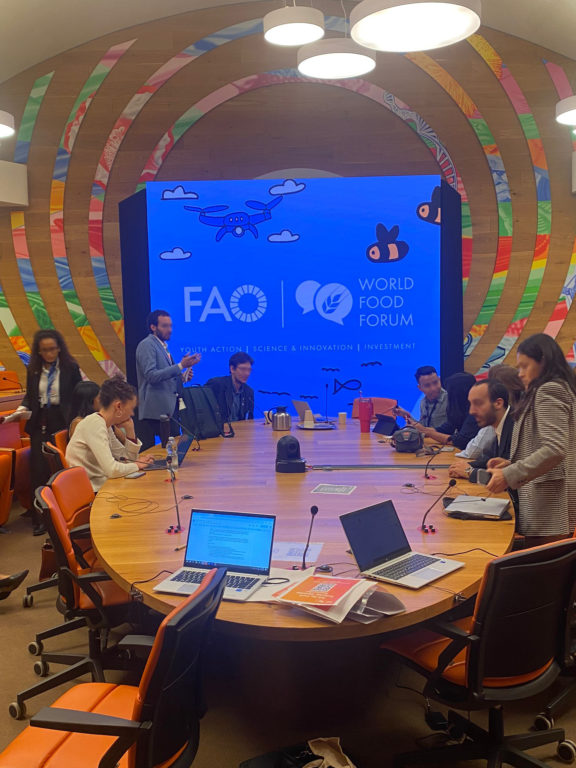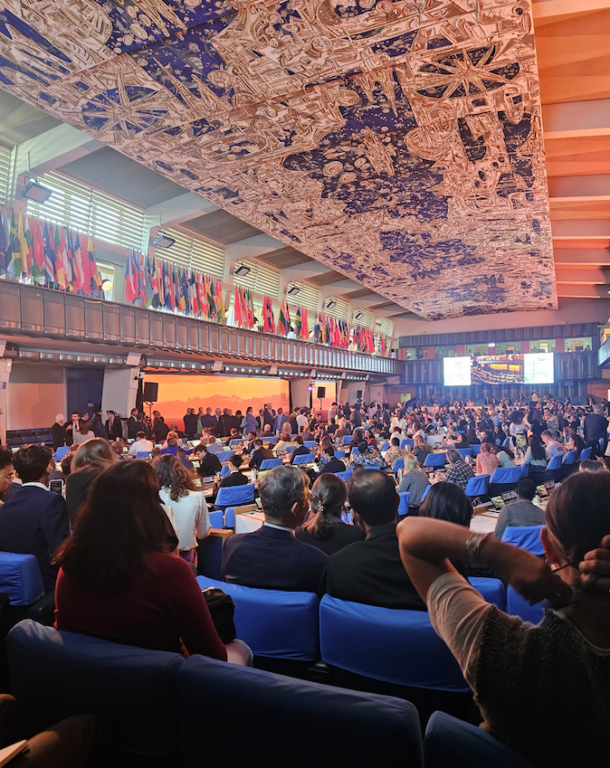This blog post is written by Einar Nordgren, Vice Chair of the Joint Committee of Student Unions of the Swedish University of Agricultural Sciences (SLU).

Drinking my morning coffee on the terrace of the headquarters of the Food and Agricultural Organization of the United Nation’s (FAO). Photo: Jens Mårtensson
It was with an ounce of confusion that I stepped into the FAO headquarters in Rome at the start of the World Food Forum, what will happen, is there anyone here that I know and what will I be able to contribute?
One of these questions was cleared up quite quickly when I entered the entrance and met representatives from SLU and Alnarp Agroecology Farm, but the other questions were still unsolved.
During the various sessions organised, I came to the realisation quite quickly that I could contribute and bring home thoughts and reflections. Much of what was discussed was linked to the involvement of young people in decision-making. Something that I, in my role as Vice President of Sluss (The Joint Committee of Student Unions of SLU), work with daily and that I also realised that in Sweden we are good at involving young people in decision-making.

A session on the opportunities and challenges of agriculture and forestry from the perspective of young people.
Photo: Einar Nordgren
But I also came to another realisation, and that is that the word sustainability has different meanings depending on where in the world we are. When I think about sustainable food production from a Swedish perspective, it’s about being economical, reducing climate impact through emissions and economising on the resources we have. I looked at the Swedish Board of Agriculture’s website to see how they have defined sustainability and in summary, their definition is about economic and environmental sustainability, but also social sustainability to fulfil human rights. During the World Food Forum, sustainable food production was discussed from a completely different perspective, namely ensuring the long-term ability to put nutritious food on the table.
The fact that sustainable food production can be defined in two such different ways was something I hadn’t realised before, but is very important to keep in mind.
Having the opportunity to participate in events like these is a privilege and something that should not be taken for granted. Students from all over the world participated in the World Food Forum, but there was one thing that separated the two groups. Namely, the conditions to participate, both when it came to getting a visa to travel to Rome, but also the financial aspect. While the majority of the students had received financial support to participate, the common factor for those who had paid for their own participation was that these were people who came from countries that do not have a stable and secure food supply.
As I sat down and listened to the different speakers and had a look around the room on the first day, I realised how big the world is!

The conference hall at the FAO headquarters. Photo: Einar Nordgren
But a few days later it turns out that it may not be as big as I think. During my second year as a student at SLU, I went on a study trip to Slovenia to see how their forestry works and I had the opportunity to meet and talk to the forestry students there. In a corridor at FAO in Rome I met one of these students again. I have heard the saying ‘The forest is not as big as you think’ during my education, but I never thought when I stepped into the World Food Forum that I would say the world is not as big as you think.
Back at campus Ultuna, I will now try to summarise a couple of extremely interesting and instructive days in Rome. Linking back to the title of this blog post, I have realised how big the world is when one word can mean so many different things, but at the same time so small, especially when you have decided which direction to take, both professionally and academically.
With regards from Einar
About the World Food Forum
The World Food Forum (WFF) was launched in 2021 by the Youth Committee of the the Food and Agriculture Organization of the United Nations (FAO), as an independent network of partners. Hosted within FAO, it serves as the premier global platform to actively shape agrifood systems for a better food future, accelerating the achievement of the Sustainable Development Goals (SDGs). Through youth action, science and innovation, and investment, the WFF forges new paths of action and multi-sector partnerships for agrifood impact at the local, regional and global levels to achieve a more sustainable, resilient, inclusive and hunger-free food future for all.
